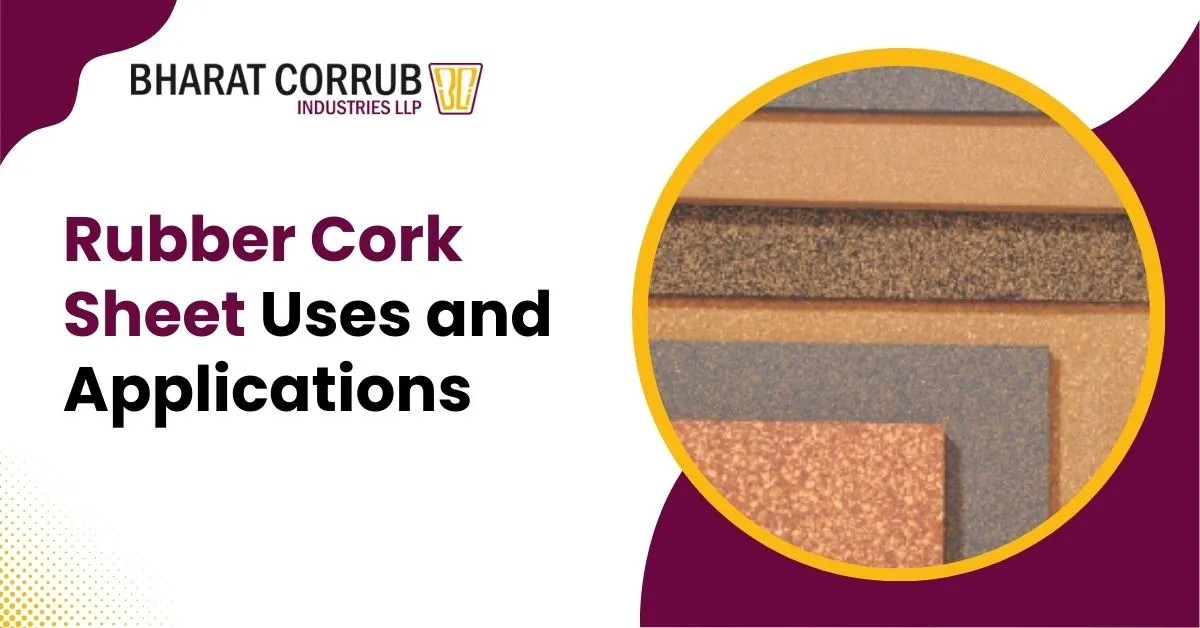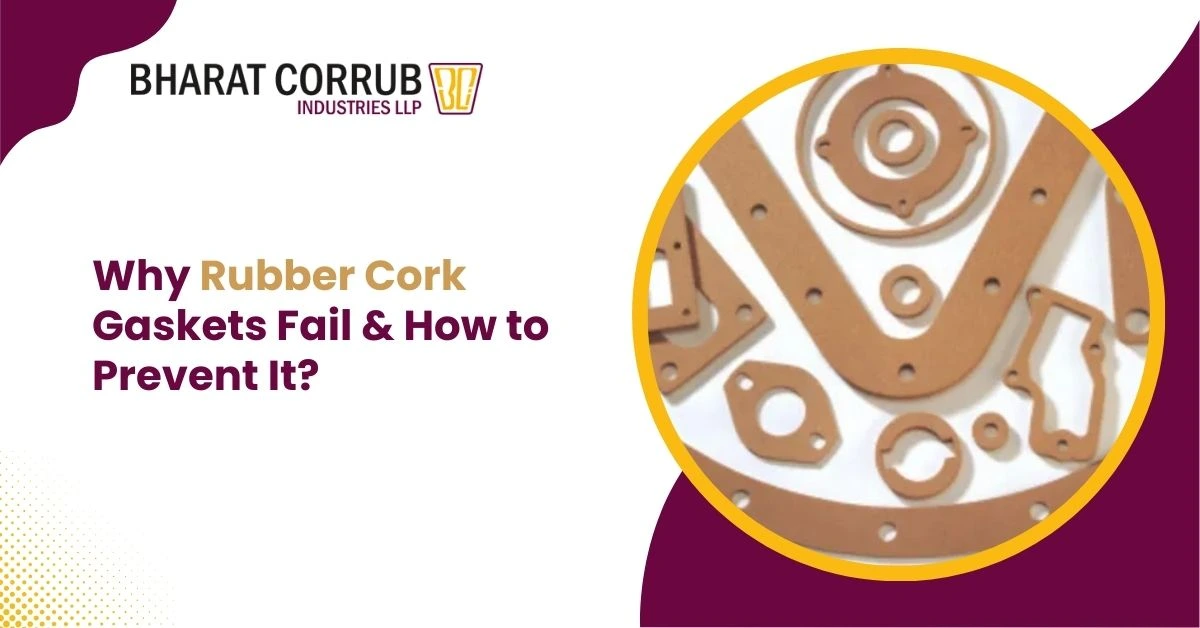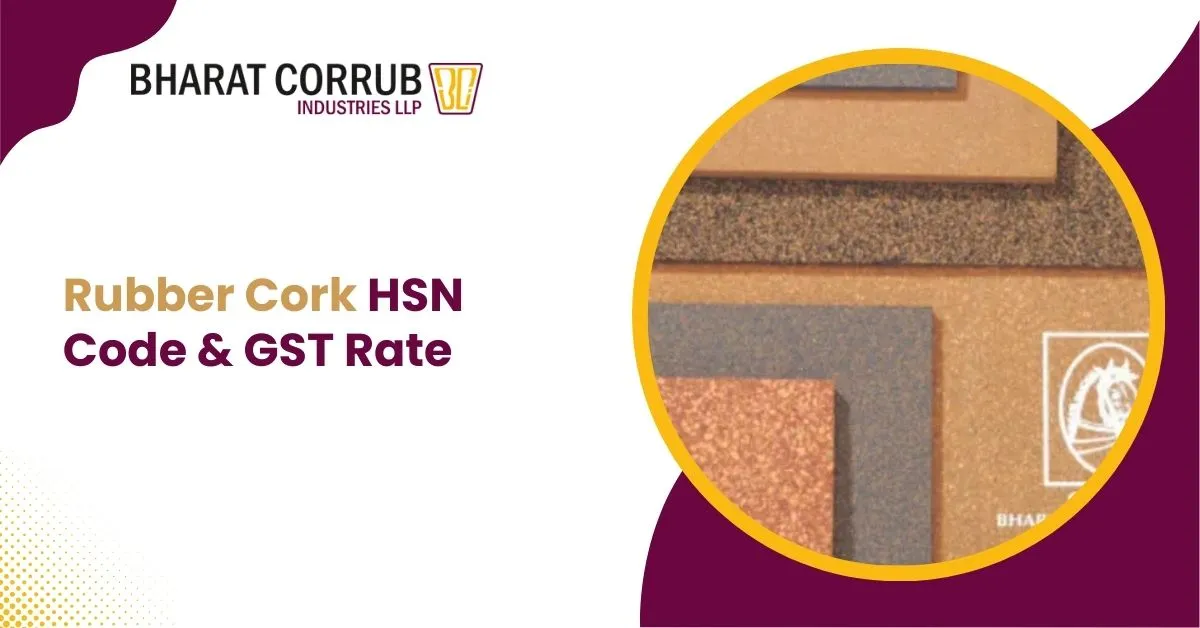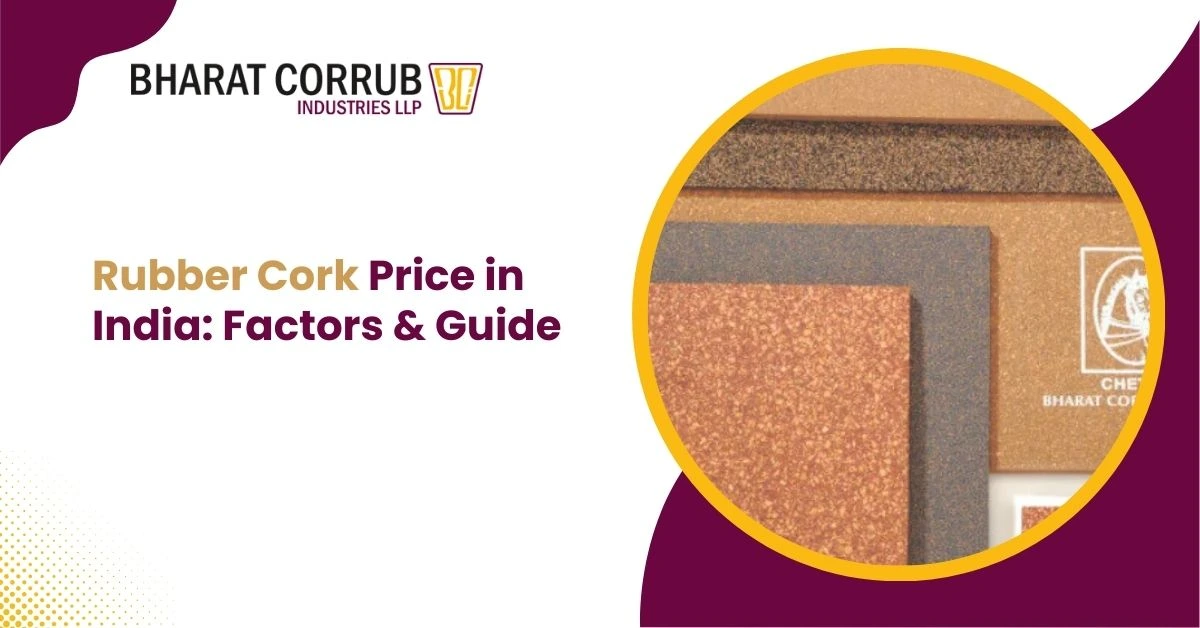Rubber cork gaskets are widely used in flanges, pumps, compressors, HVAC systems, and industrial enclosures…

Rubber cork sheets are some of the most versatile and resilient industrial materials on the market today. These sheets are a combination of natural cork granules and synthetic rubber, which provides the perfect blend of flexibility, compressibility and durability. Due to their unique properties, rubber cork sheets are used all over the world in applications where sealing, insulation, vibration dampening, and temperature protection are necessary. They perform particularly well in applications where mechanical stress, the exposure to oils, and change in temperature is encountered.
Rubber cork sheets provide the same benefits of using either plain cork or rubber on their own, because it combines the lightweight, eco-friendly properties of cork, with the more durable and pliable characteristics of rubber. This has made them a desirable industrial insulation option for electrical, automotive, construction and industrial uses around the world.
Key Properties of Rubber Cork Sheets
The performance of rubber cork sheets comes from their unique composition. Some of the most important properties include:
- High Flexibility & Compressibility: Rubber cork sheets can adapt to uneven surfaces, ensuring tight seals and reducing leakage in machinery and electrical components.
- Oil & Solvent Resistance: These sheets resist chemicals, oils, and industrial solvents, making them ideal for applications like engine gaskets and transformer insulation.
- Noise & Vibration Absorption: Rubber cork’s natural structure and elasticity reduce vibration and dampen noise, providing better machinery performance and longer equipment life.
- Temperature Resistance: Rubber cork sheets withstand high and low temperatures without losing shape or function.
- Durability & Longevity: Resistant to wear and tear, these sheets last longer than many other gasket or sealing materials.
These properties make rubber cork sheets reliable, long-lasting, and cost-effective for industrial operations.
Common Uses of Rubber Cork Sheets
Industries around the world rely on durable and flexible materials, and the Rubber Cork Sheet stands out for its exceptional sealing, insulation, and vibration absorption capabilities.
Electrical & Transformer Industry
Rubber cork sheets are extensively used in the electrical industry, particularly in transformers and switchgear. They act as:
- Gaskets to prevent oil leaks.
- Insulation layers between conductive surfaces.
- Seals for enclosures exposed to moisture or heat.
Their oil and heat resistance ensures that electrical equipment runs safely and efficiently, even under high-stress conditions.
Automotive Industry
In the automotive sector, rubber cork sheets serve multiple purposes:
- Engine Gaskets: Protect engines from oil leakage and maintain compression.
- Gearbox Seals: Provide durable sealing under mechanical stress.
- Anti-Vibration Pads: Reduce noise and vibration in machinery and chassis components.
Because of their compressibility and chemical resistance, rubber cork sheets enhance vehicle performance and extend the life of critical parts.
Construction & Flooring
Rubber cork sheets are widely used in construction and building applications:
- Soundproofing: Used under flooring or in walls to reduce noise transmission.
- Shock Absorption: Cushion heavy loads and reduce impact damage in flooring.
- Expansion Joints: Provide flexible joints in concrete and masonry structures.
They are particularly valuable in high-rise buildings, commercial complexes, and industrial facilities where durability and vibration control are crucial.
Packaging & Industrial Applications
Rubber cork sheets are also used in packaging, machinery, and industrial applications:
- Protective Linings: Cushion delicate machinery or equipment.
- Anti-Slip Pads: Provide friction and safety in industrial environments.
- Custom Gaskets: Fabricated into different sizes and shapes to fit specialized industrial machinery.
These applications demonstrate the versatility of rubber cork sheets in reducing wear, protecting surfaces, and improving safety.
Advantages of Using Rubber Cork Sheets
Choosing rubber cork sheets over other materials offers numerous benefits:
- Durable & Long-Lasting: Resistant to wear, oil, chemicals, and temperature changes.
- Cost-Effective: Provides reliable performance at a reasonable price.
- Eco-Friendly: Combines natural cork with rubber, reducing reliance on fully synthetic materials.
- Versatile Applications: Used in electrical, automotive, construction, industrial, and packaging sectors.
- Ease of Fabrication: Can be cut, punched, or molded into custom shapes for specific applications.
Want to explore the best cork sheet options for your industry? Contact us today and get professional support!
Rubber Cork Sheets vs Plain Cork Sheets
| Feature | Rubber Cork Sheet | Plain Cork Sheet |
| Flexibility | High (due to rubber content) | Medium |
| Oil Resistance | Excellent | Poor |
| Applications | Electrical, Automotive, Industrial | Crafts, Notice Boards, Flooring |
| Durability | Very High | Moderate |
| Cost | Slightly Higher | Economical |
Insight: Rubber cork sheets are ideal for heavy-duty, industrial-grade applications, while plain cork sheets are better suited for light-duty or decorative purposes.
Global Demand for Rubber Cork Sheets
Rubber cork sheets have witnessed growing demand worldwide, especially in the automotive, electrical, and construction industries. Factors contributing to this growth include:
- Rising industrialization and infrastructure development.
- Need for durable and eco-friendly materials.
- Expanding automotive manufacturing in Asia, the Middle East, and Africa.
With their combination of durability, flexibility, and chemical resistance, rubber cork sheets have become a trusted material for global industrial applications.
Frequently Asked Questions
What is a Rubber Cork Sheet used for?
Rubber cork sheets are commonly used in transformers, automotive gaskets, flooring, and as vibration and sound-dampening materials.
Is Rubber Cork good for sealing?
Yes, rubber cork sheets provide excellent sealing due to their compressibility, oil resistance, and durability.
Which industries use Rubber Cork Sheets?
They are widely used in electrical, automotive, construction, and packaging industries.
What is the difference between Rubber Cork and Plain Cork Sheets?
Rubber cork sheets combine cork with rubber, making them more durable, flexible, and oil-resistant, while plain cork sheets are best for crafts and light-duty applications.
Can Rubber Cork withstand oil and heat?
Yes, rubber cork sheets are specifically designed to resist oil, solvents, and high temperatures, making them suitable for industrial machinery and automotive use.
Where can I buy Rubber Cork Sheets?
Rubber cork sheets are available through industrial suppliers and exporters worldwide, catering to both domestic and international markets.
Conclusion
Rubber cork sheets are a high-performance, versatile, and eco-friendly solution for a wide range of industrial applications. They are ideal for transformers, automotive gaskets, flooring, and packaging, thanks to their sealing ability, vibration absorption, and resistance to oil and heat.
As industries continue to demand durable, efficient, and reliable materials, rubber cork sheets remain a go-to solution for engineers, designers, and manufacturers worldwide.




